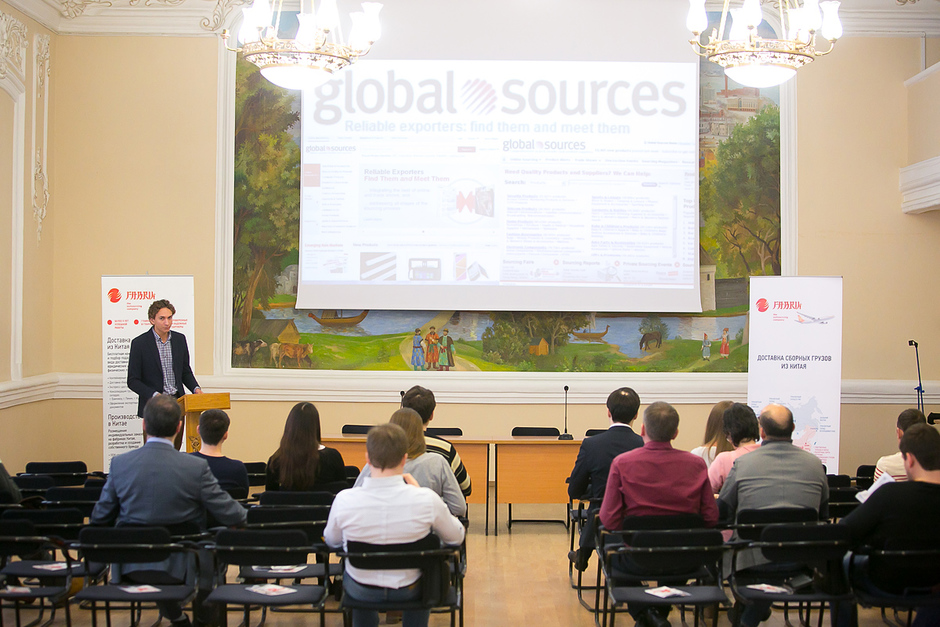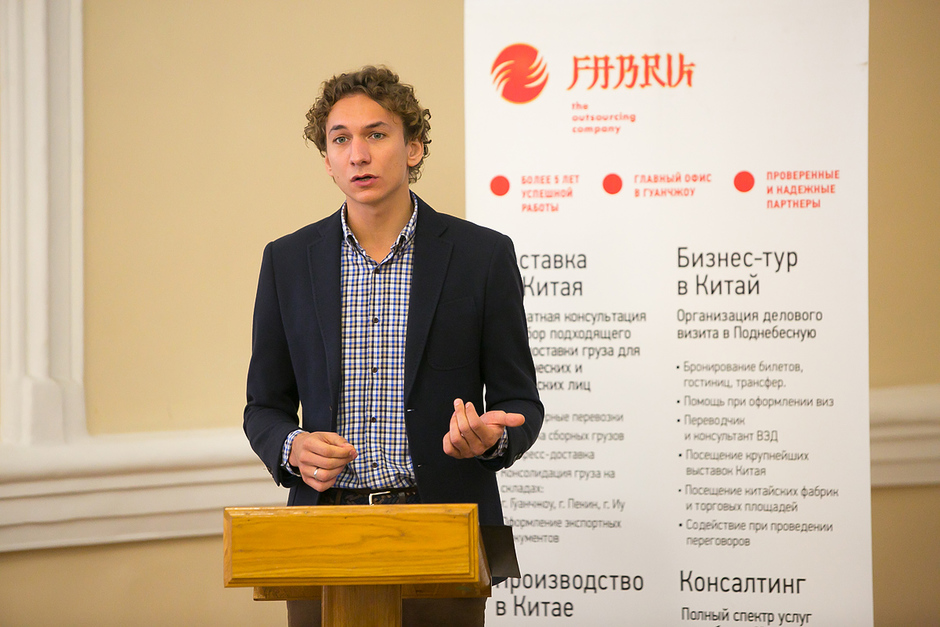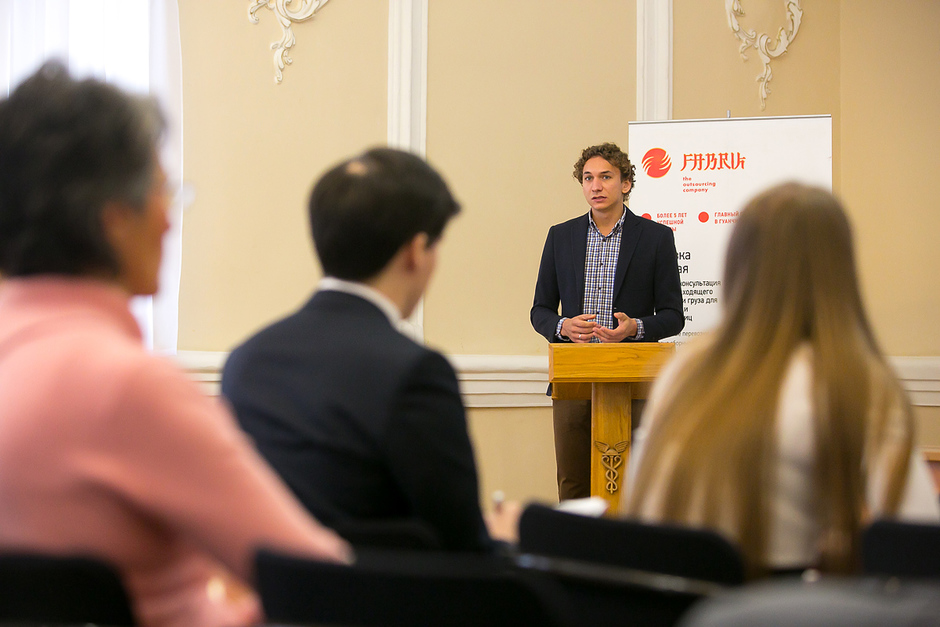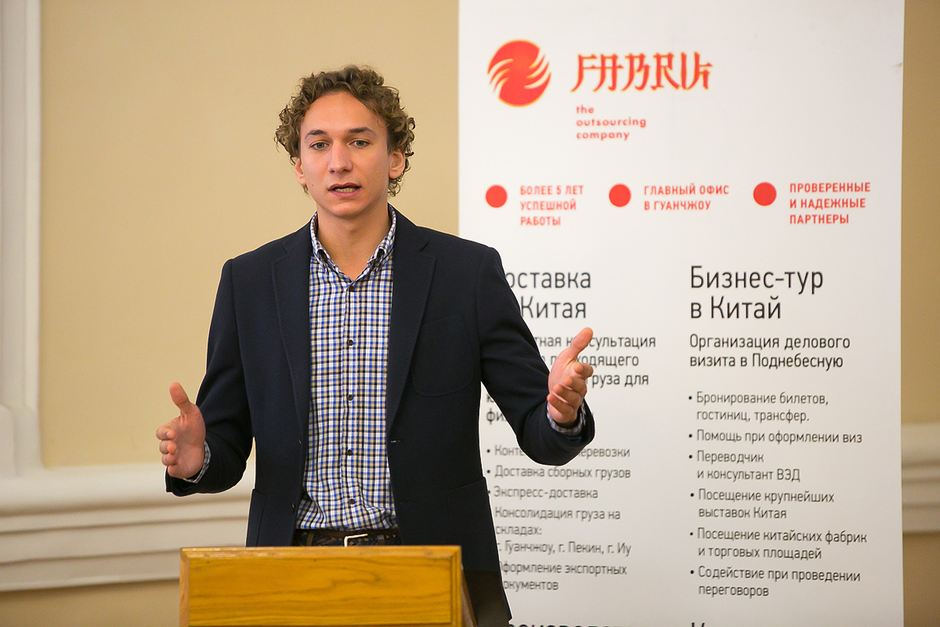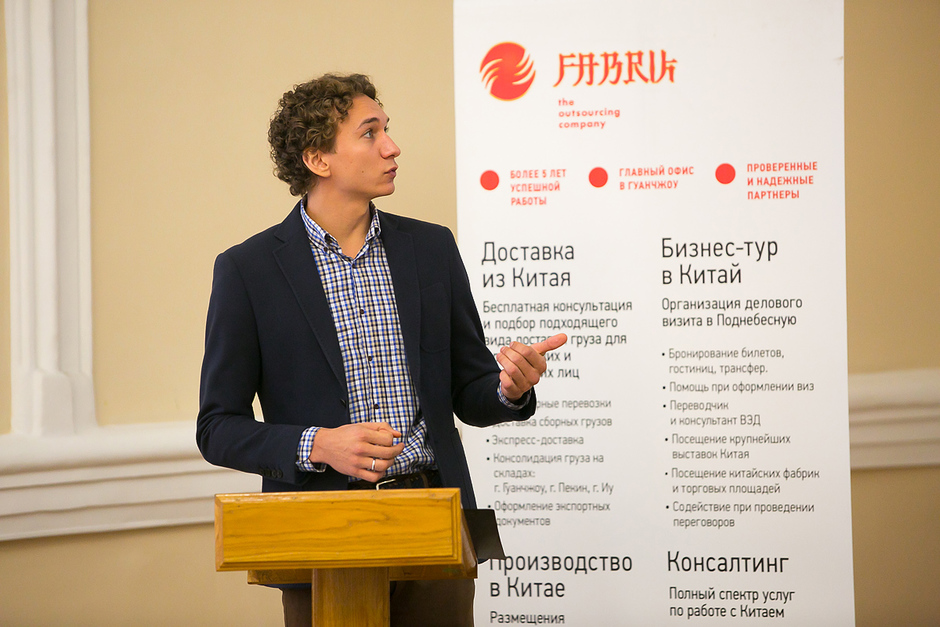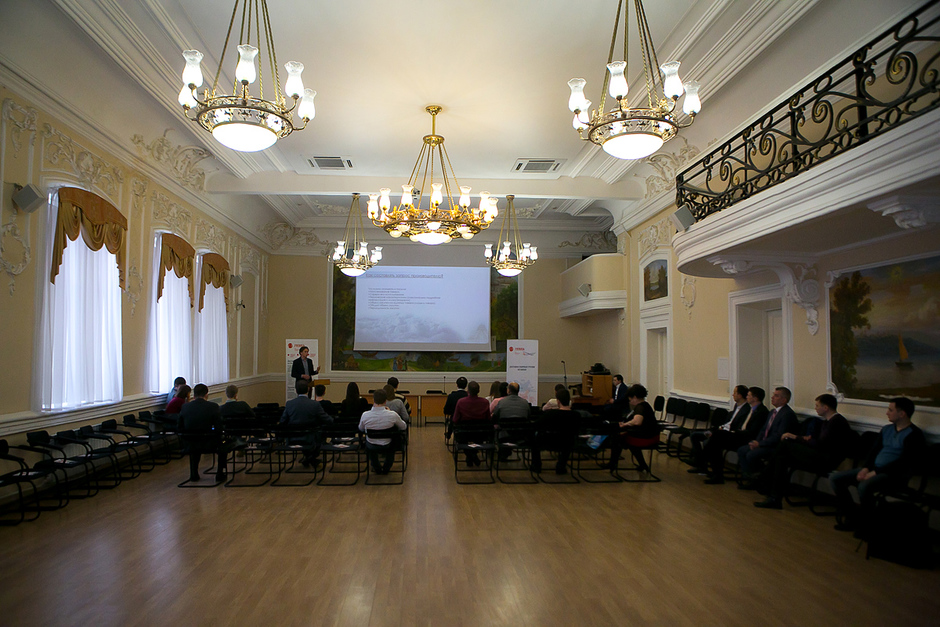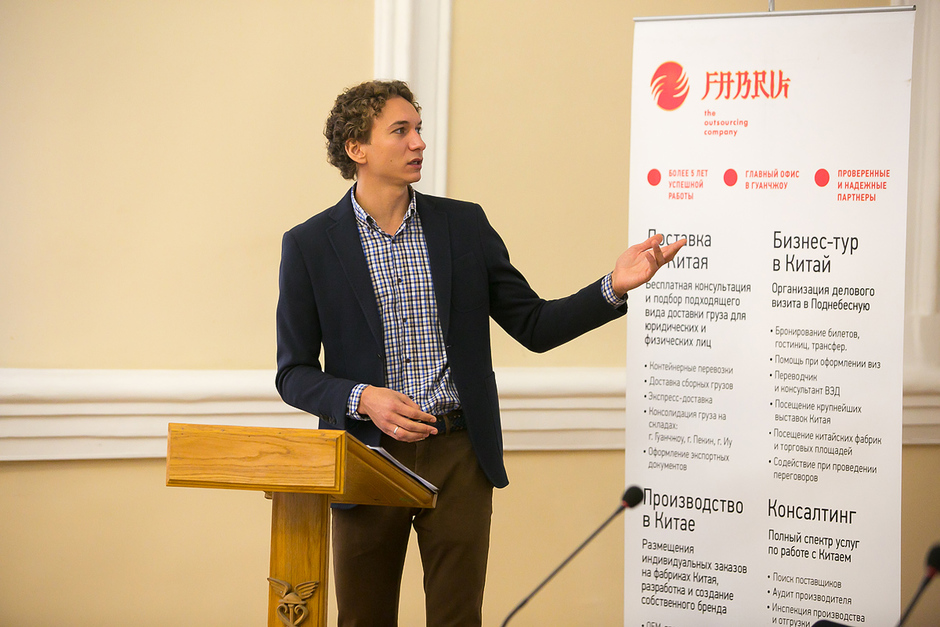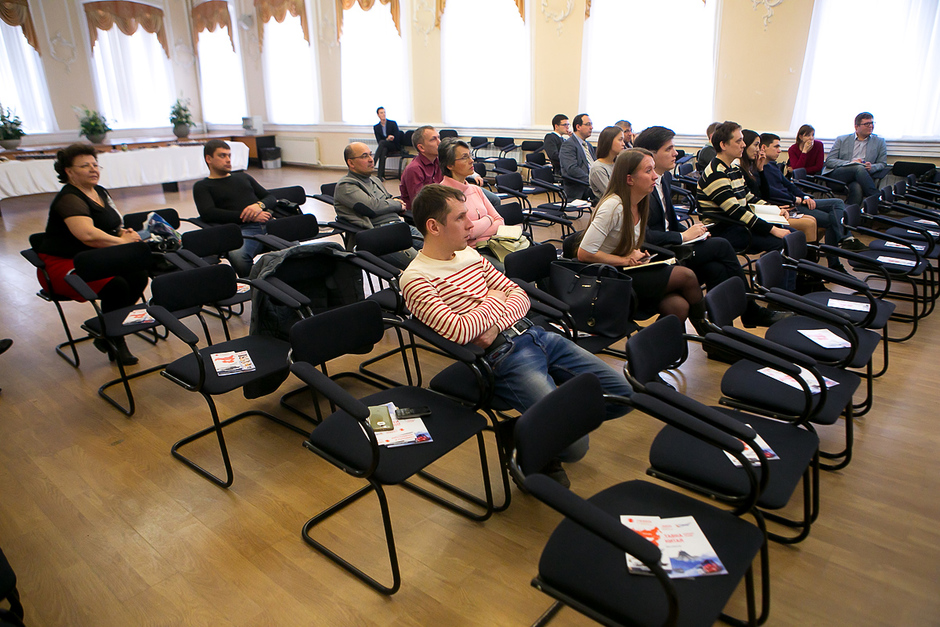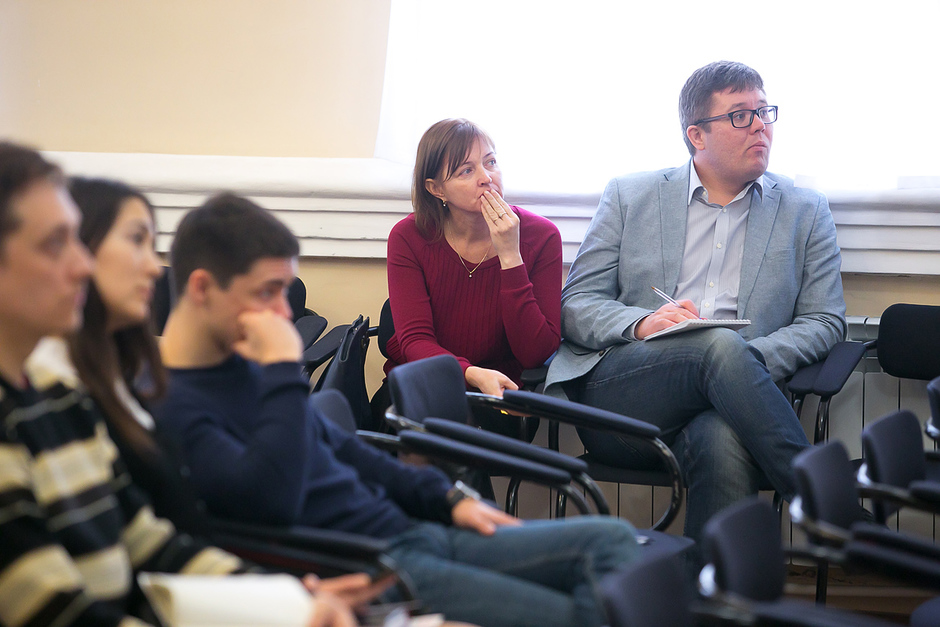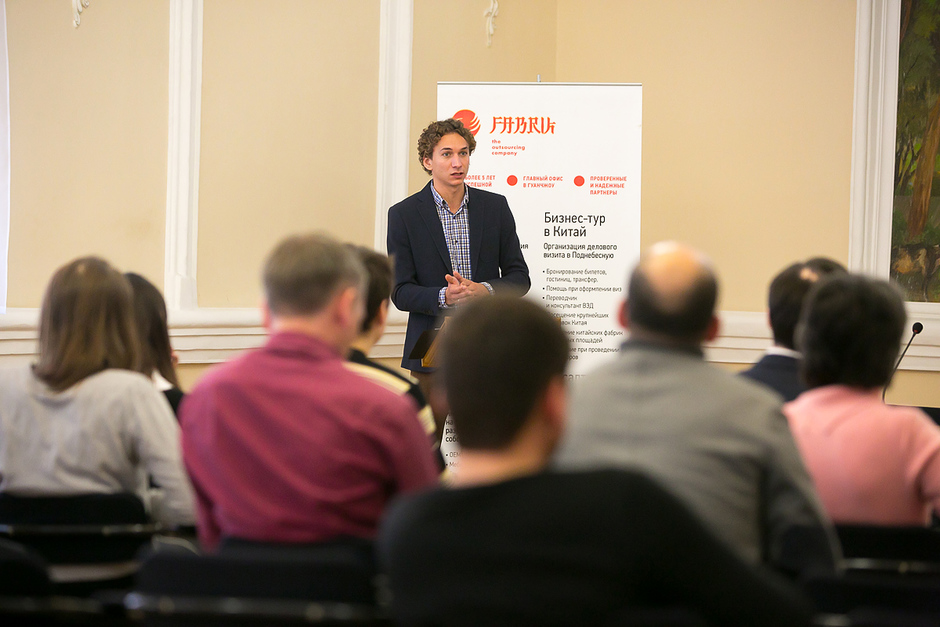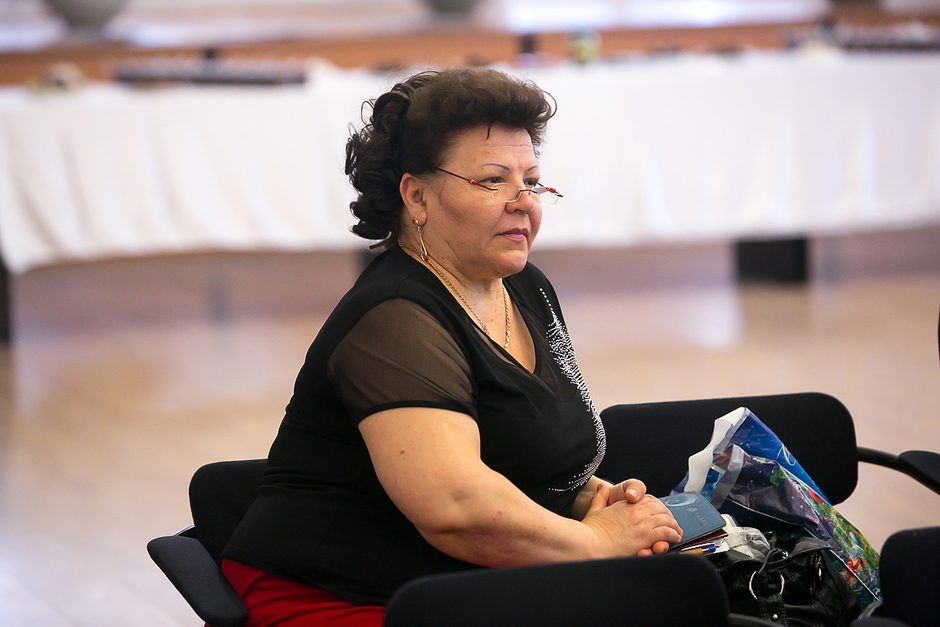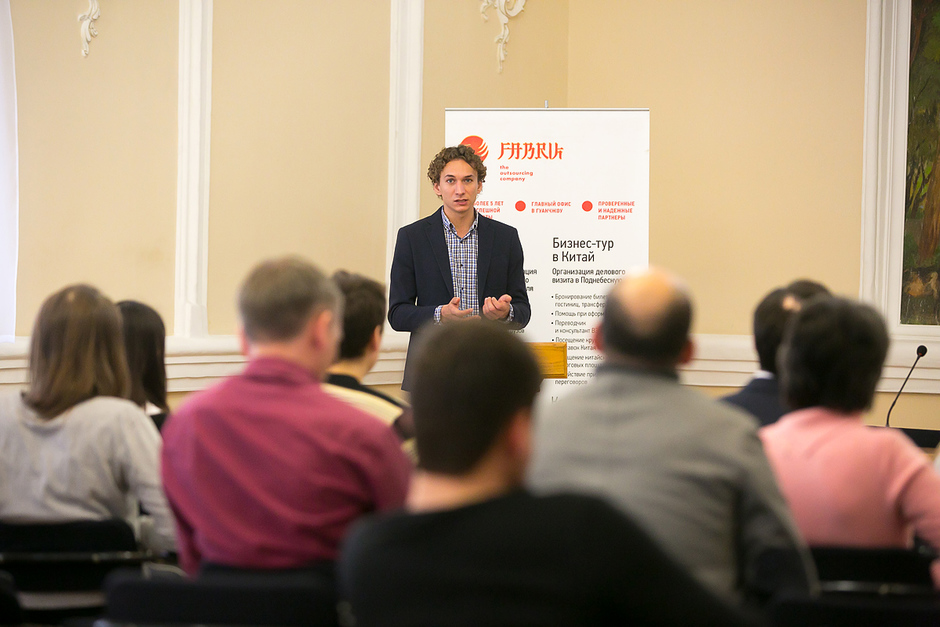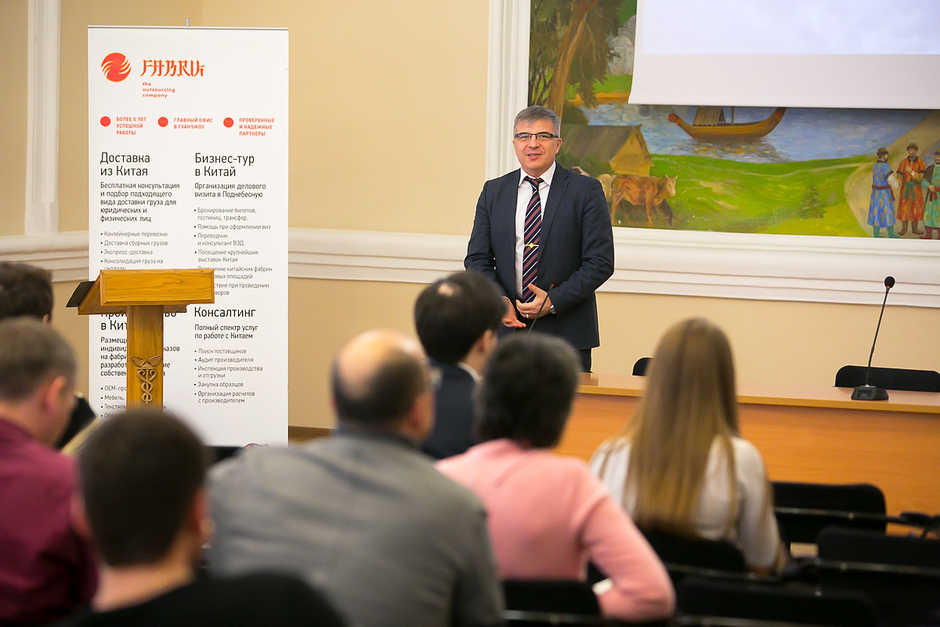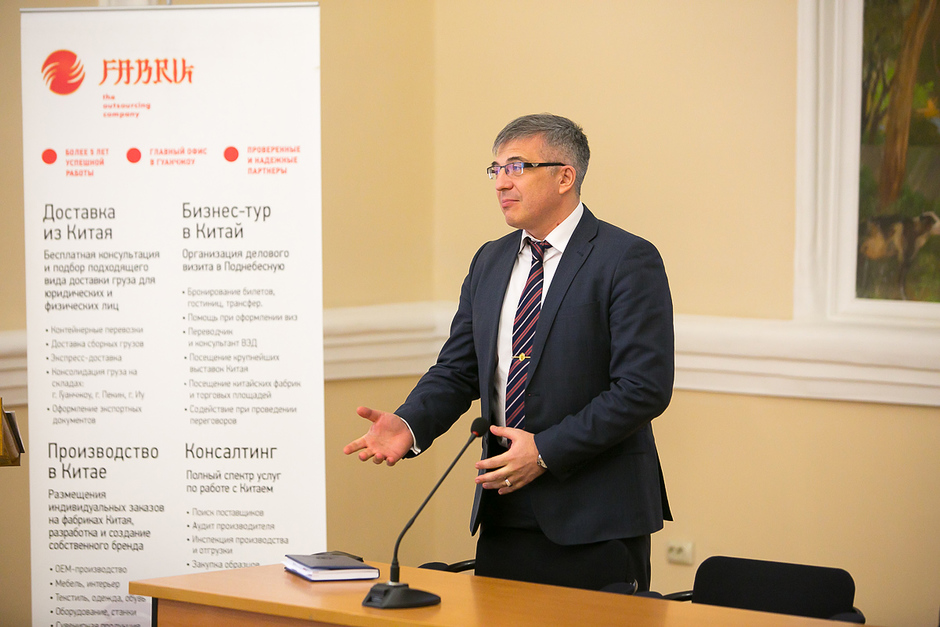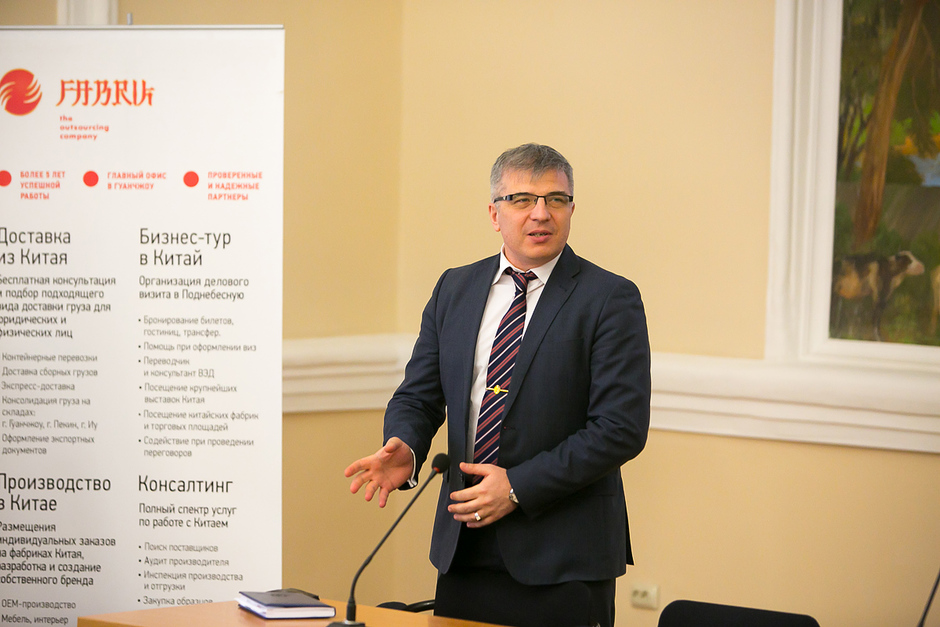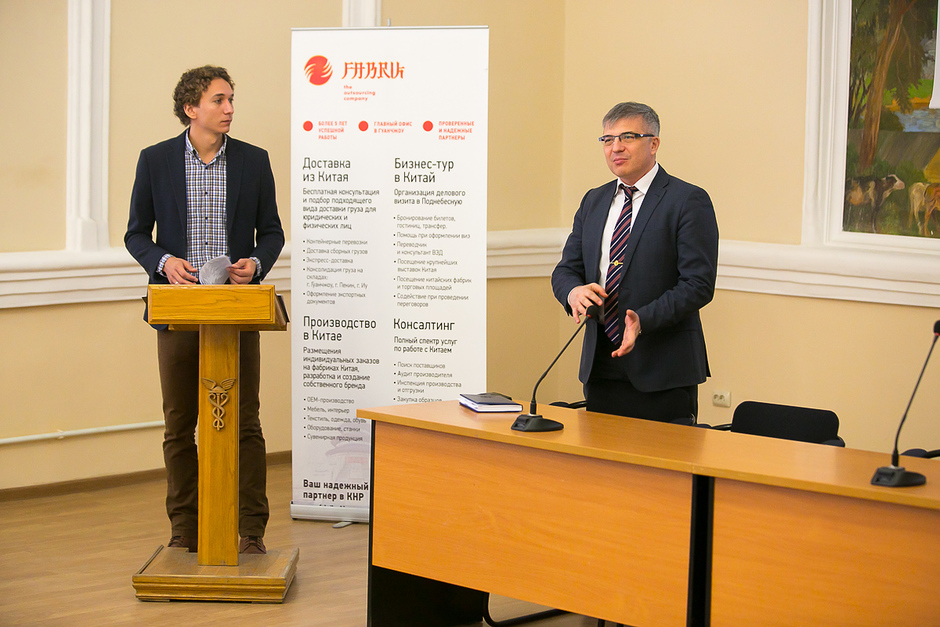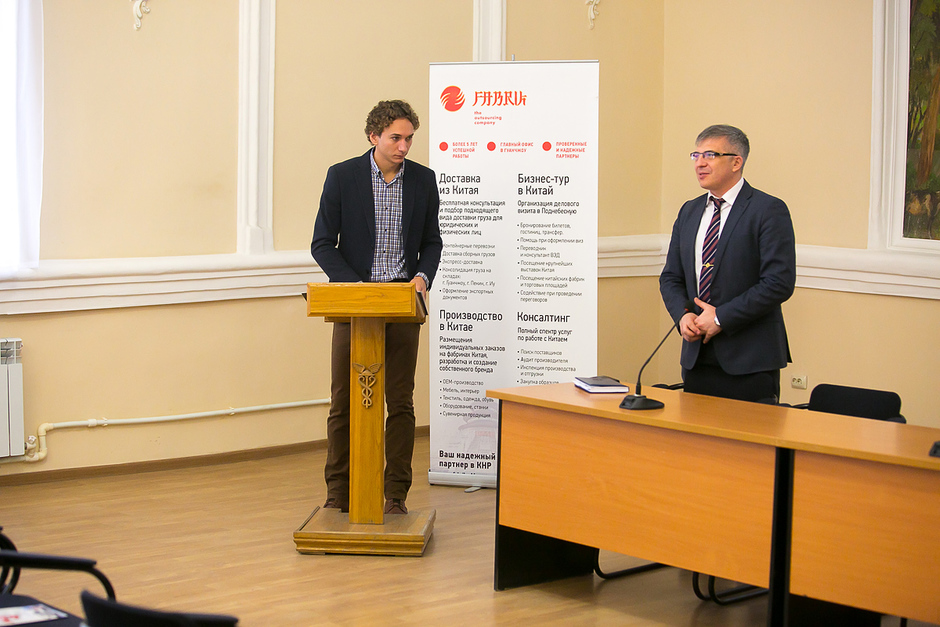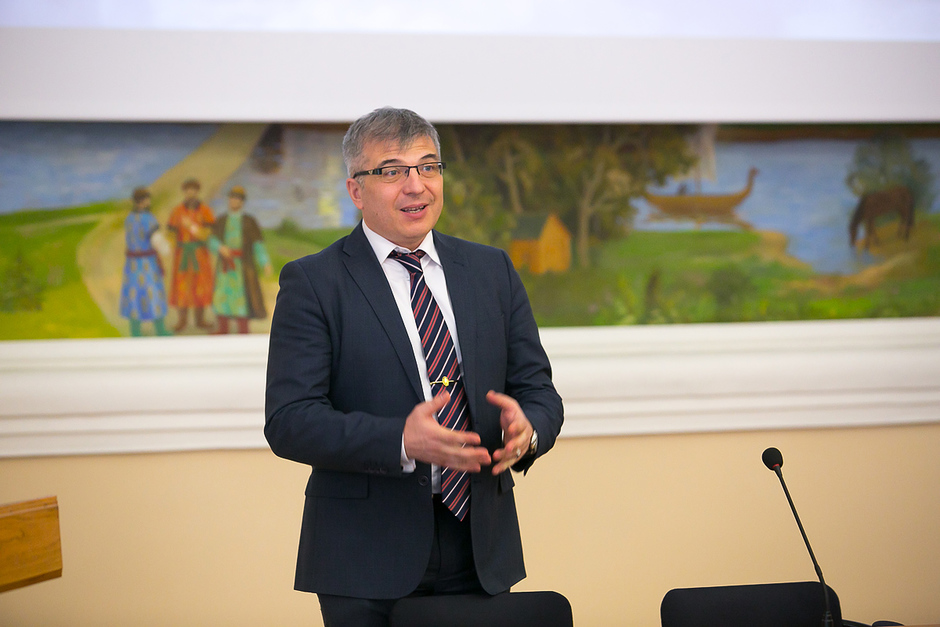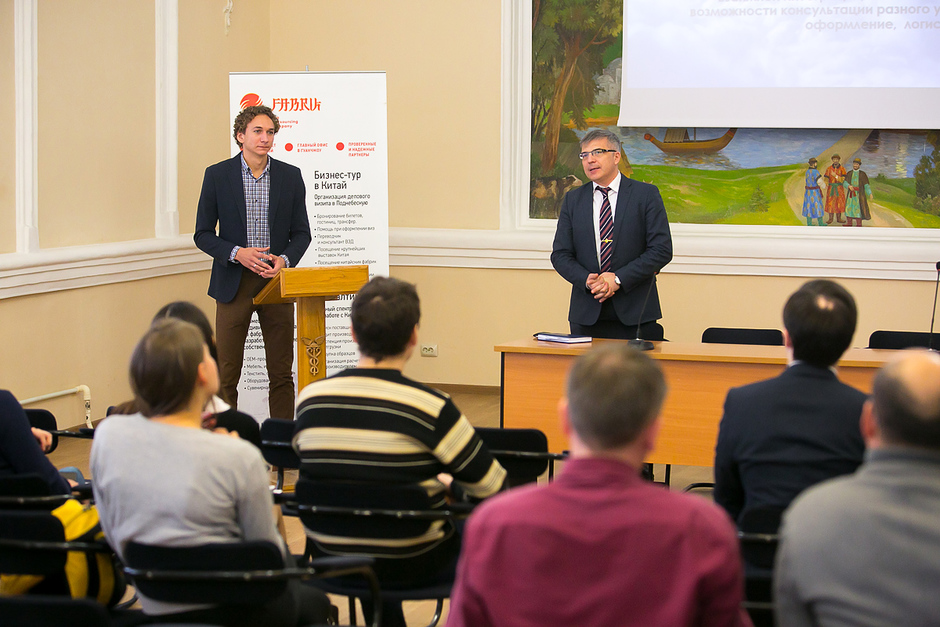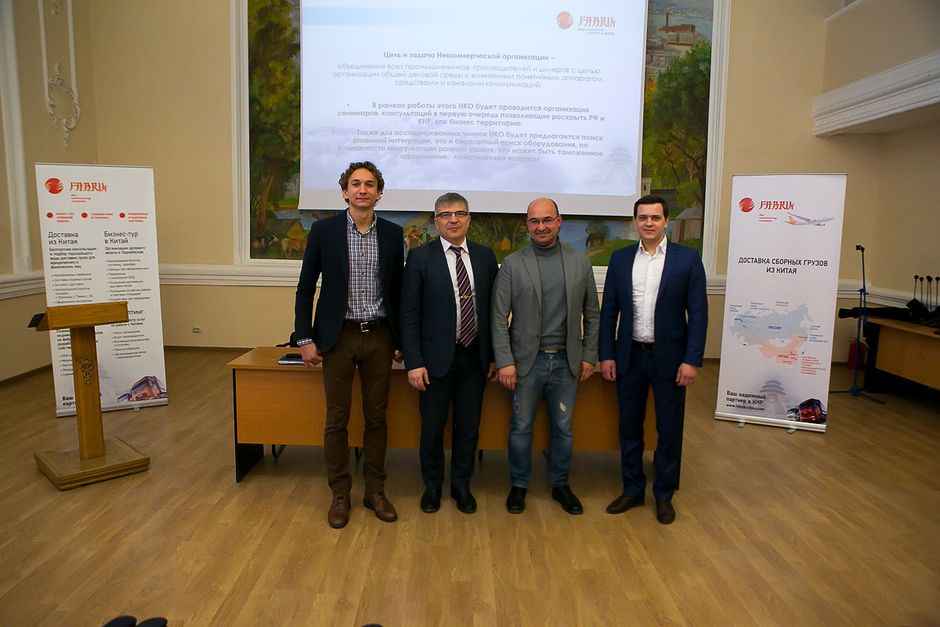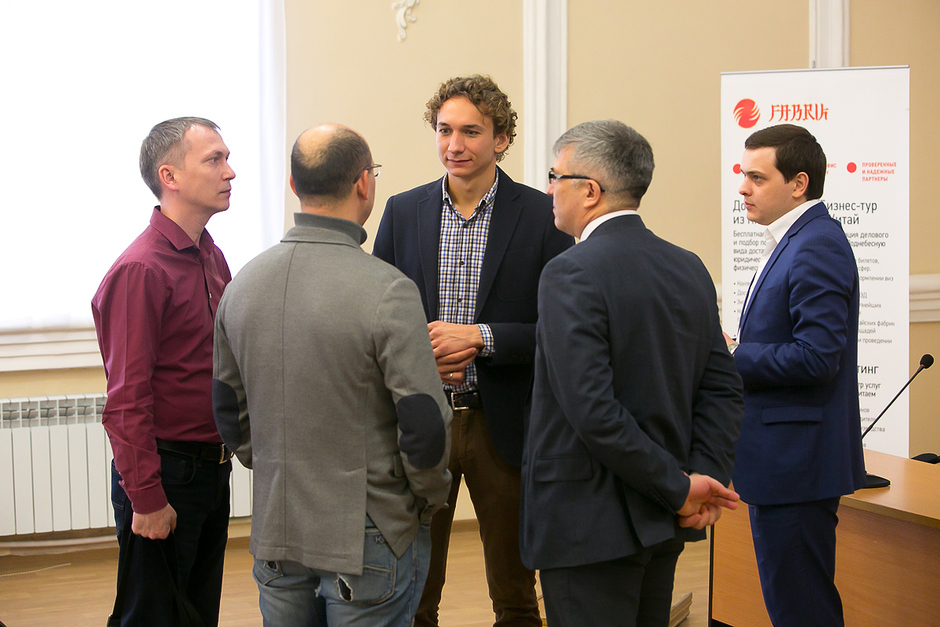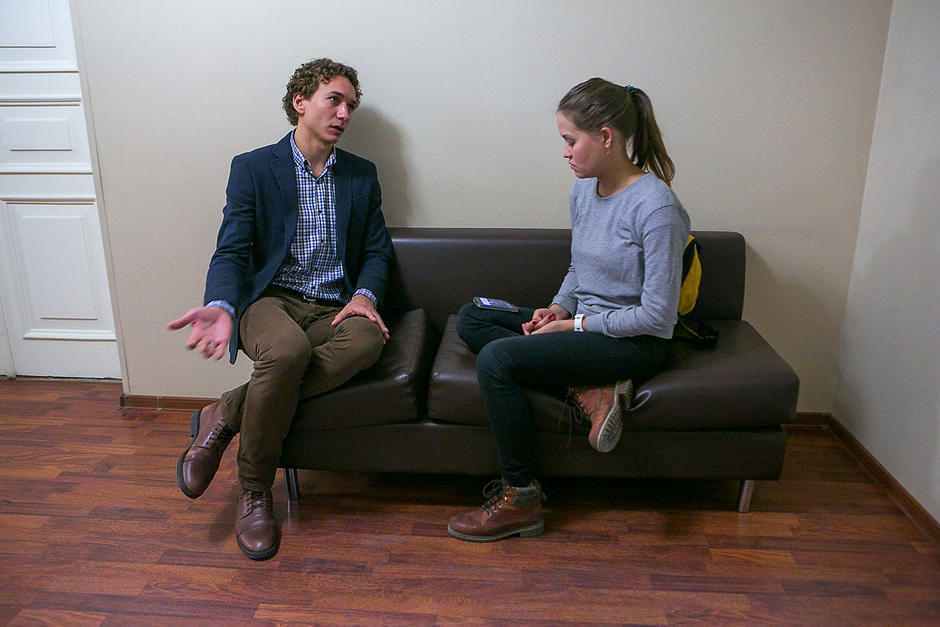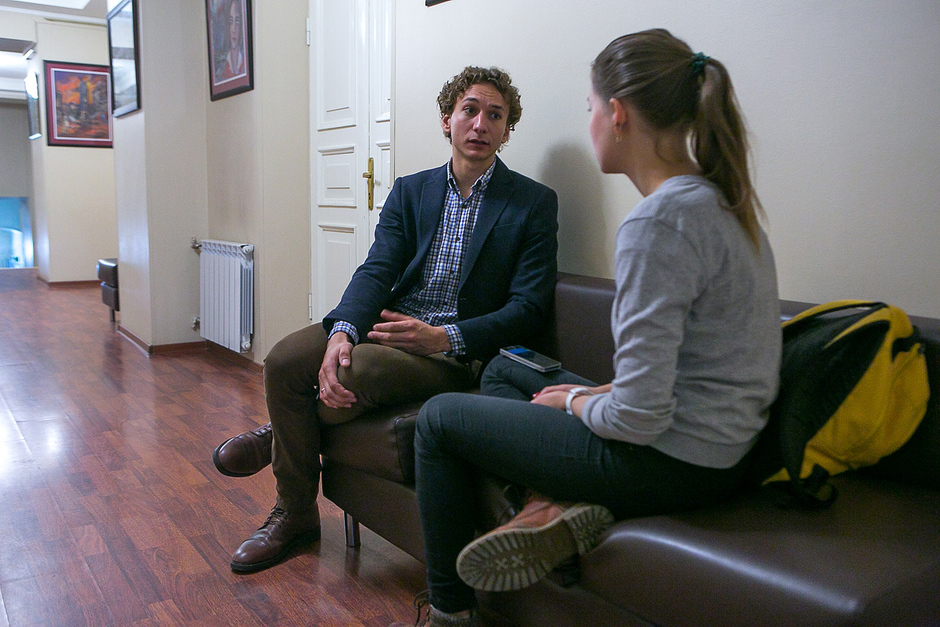‘Average salary in Russia is 15 000 – for this money people work only in Cambodia’
An entrepreneur from Ufa wants to open Tatarstan representative office in the province of China
The trade company Fabrik wants to enter the market of Tatarstan. The company is engaged in the mediation between Russian and Chinese entrepreneurs. The company's Director General is an entrepreneur from Ufa Vladislav Pantyukhin. In Kazan he tried to convince the Chamber of Commerce and Industry of Tatarstan to establish a representative office in China, in Guangdong province. The correspondent of Realnoe Vremya listened to an interesting lecture and spoke to Vladislav Pantukhin.
How to build a business with China
The main activity of the company Fabrik is that they help entrepreneurs to establish import and export between Russia and China. In other words, they are intermediaries. In particular, they deal with logistics, customs procedures, find the manufacturer from China and so on. At the seminar in Kazan they discussed many aspects of work – from how to set a task to a Chinese manufacturer to the options of delivery. The seminar, of course – it's a side goal. The main one is the acquaintance with local entrepreneurs and establishing contacts with the Chamber of Commerce and Industry of the Republic of Tatarstan.
According to Pantyukhin, in China there are two unwritten laws. The first one concerns the relations, the second – the so-called rule 'the same'. In other words, for the Chinese a button and a lock – are identical concepts, so a technical task should be as specific as possible when ordering.
You can choose a manufacturer in numerous exhibitions in China, where they represent a specimen of their product. Interestingly, the Chinese do not work without a transaction – a customer pays the money, choose the product, and only after that production starts. Another caveat – each factory is engaged in only one activity. That is, if the province produces slippers, it looks like this: one factory engaged in the production of rubber soles, the other – fabric part, and the third one – glues or sews the two above-mentioned parts. This system works everywhere – from the led lamps to vending machines.
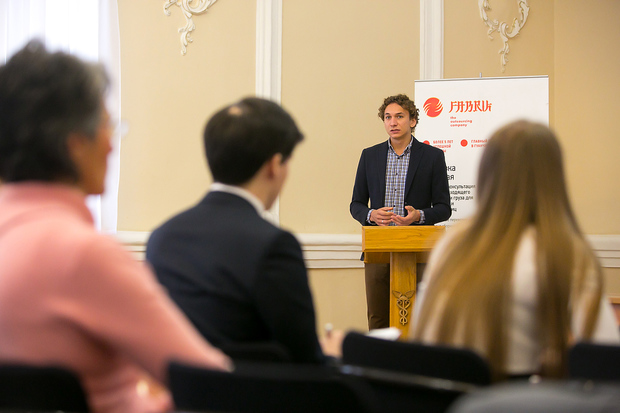
Before signing a contract you also choose the quality of the product. Depending on the price you can, for example, to order slippers with a sole glued, sewn or glued and sewn. Actually, there are many nuances in the interaction with Chinese manufacturers, here is just a part of them.
In Russia, according to Vladislav Pantyukhin, in all hypermarkets and small shops there are mainly Chinese products now. In particular, his company supplies sponges, face masks and other items for Tatarstan's network of household chemical goods Alpari. In this case, they work at a premium of 100% and with payment by instalments. That is, their 100% Alpari gives back 45 days after delivery of the products.
Either large expenses or through cargo
'It is clear what are our relations in general: there is a commodities-based industry, which consists of the oil and gas industry and non-ferrous metals – it is what is controlled by our government, and they do not give a lot of chances to participate in this to us,' Pantyukhin started his story about exports of goods from Russia to China. For SMEs as an option he suggested the supply of timber, grain, milk powder, honey, soy, i.e. food.
'Food segment is developing now, and, indeed, now even our chocolates entered the Chinese market. They sell our confectionary products, our juices,' said the speaker.
As for transportation, there are several options for delivery of the goods – by train with road haulage, by plane and by sea. The most reliable is by sea. For transportation, the list of documents is needed, also to pay duty and customs fee — on average all these used to cost about 50% of the value of the goods. Now the government has issued a new decree according to which customs procedures are differentiated for different categories of risk.
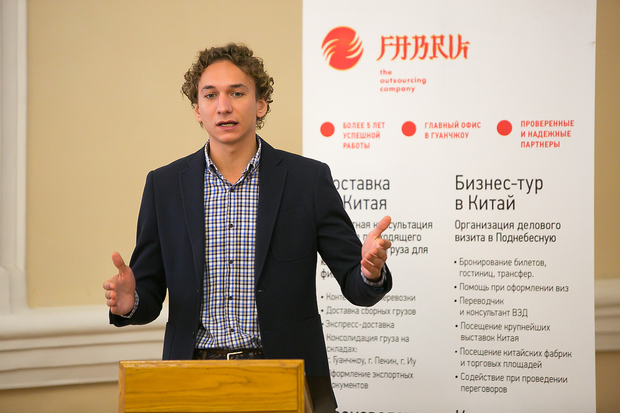
'The only thing that small and medium businesses did — they optimized a value of the contracts. They bought for 100, shown for 50, saved on duty and VAT, and this allowed them somehow to stay in the black. Now the market does not understand what to do. Half of the business simply does not know how to deliver the goods now.
If you wish, you can use the services of Chinese and transport products illegally. This method is called 'cargo' and implies the illegal transportation of small quantities of goods, as an alternative — of a counterfeit. In this case, the shipping will be cheaper but there won't be any document on the products.
'Logistics, customs from China – it is a very competitive activity in general'
In an intermission between the speech the correspondent of Realnoe Vremya talked to Vladislav Pantyukhin.
Who else in the Russian market is engaged in this activity besides you?
Actually, a lot of companies, just everyone has its own vector of development. Logistics, customs from China – it is a very competitive activity and a very large market in general. But, I think, not so many companies are engaged in complex deliveries and work with network retailers. It is difficult, time-consuming, wide range and variety of demands from the retailers, but it is stable. Because when you start working with them, you supply them cyclically. Private business exists today and gone tomorrow.
As for logistics, have changes in the rules of the customs import, Platon [Platon Electronic Toll Collection (ETC) system – editor's note] and other innovations affected the transportation?
Platon has not affected because we are engaged in international transportation. But the new law has affected, according to which everyone needs to register a cargo risk, and, accordingly, the customs in our country became much more expensive. Now, businesses, as well as logistics customs structures – they don't understand what to do. They don't know in what area they should move. Because of the high cost, as a consequence, in our country there is a shift towards a customs union: brokers and logisticians do not want to import goods to Russia and to register at a high cost. Instead, they're transport it to Kyrgyzstan, Kazakhstan and Belarus, register there and import through the Customs union countries for an expensive logistics, thereby optimizing customs payments, leaving our treasury without fees and VAT.
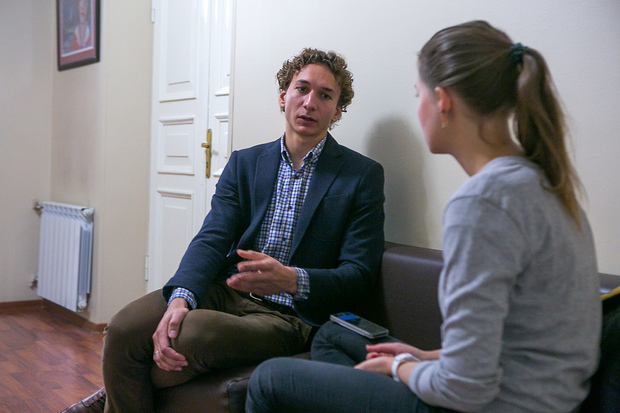
We are a country dependent on light industry. Our light industry is in the neurosis – there is nothing, nothing is produced
At the seminar you actively talked about import substitution, about the fact that Russia can handle itself, but you bring from China blankets and towels.
We tell and show in order someone, maybe, started to produce in Russia. We are a country dependent on light industry. Our light industry is in the neurosis – there is nothing, nothing is produced. All that was from the Soviet era has long been sold out and they made the malls from them. Therefore, even if 10 suppliers appear in the market they will be able to meet the needs of the market that is formed in our country only in 35-40 years.
How has the crisis affected your activity?
Of course, the change of the ruble rate led to the fact that for some time the market was in neurosis. Rates fell, and people were afraid to buy because of the strong instability of the dollar. The pace of imports from China decreased, and at the moment the advantage of Russia is that now they are trying to transport a large amount of the food product in China. Actually, we can make a joke and say that we are Chinese. If you look at the labour cost in Russia — an average salary is 15 000 rubles – for this money people work only in Cambodia. These salaries do not exist. If you talk about China, the average salary is 3000 yuan, that is 33 000 rubles. In our country, it is a salary of an engineer, and there for that money even a student without education does not want to work. Accordingly, we understand that now in our country the cost of energy, communications, working areas and manpower is comparable to China 10-15 years ago.
Can we say that this sector is in decline now?
It is more interesting to say that it is in rise (laugh). But in general, everything is in decline now, it is a usual tendency, taking into account that our country is in that situation. We have an increase, probably, in food exports from Russia. This trend is developing.

